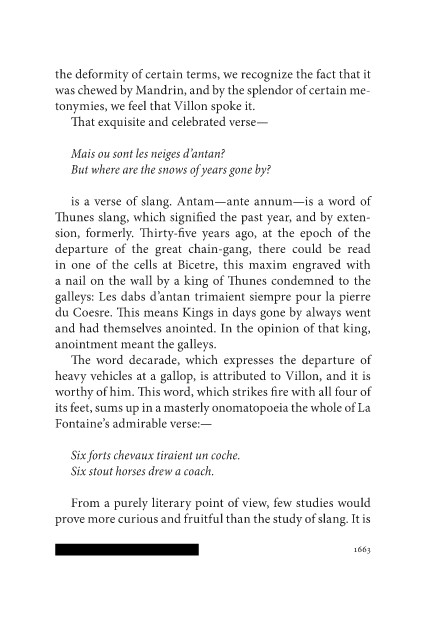Page 1663 - les-miserables
P. 1663
the deformity of certain terms, we recognize the fact that it
was chewed by Mandrin, and by the splendor of certain me-
tonymies, we feel that Villon spoke it.
That exquisite and celebrated verse—
Mais ou sont les neiges d’antan?
But where are the snows of years gone by?
is a verse of slang. Antam—ante annum—is a word of
Thunes slang, which signified the past year, and by exten-
sion, formerly. Thirty-five years ago, at the epoch of the
departure of the great chain-gang, there could be read
in one of the cells at Bicetre, this maxim engraved with
a nail on the wall by a king of Thunes condemned to the
galleys: Les dabs d’antan trimaient siempre pour la pierre
du Coesre. This means Kings in days gone by always went
and had themselves anointed. In the opinion of that king,
anointment meant the galleys.
The word decarade, which expresses the departure of
heavy vehicles at a gallop, is attributed to Villon, and it is
worthy of him. This word, which strikes fire with all four of
its feet, sums up in a masterly onomatopoeia the whole of La
Fontaine’s admirable verse:—
Six forts chevaux tiraient un coche.
Six stout horses drew a coach.
From a purely literary point of view, few studies would
prove more curious and fruitful than the study of slang. It is
1663

